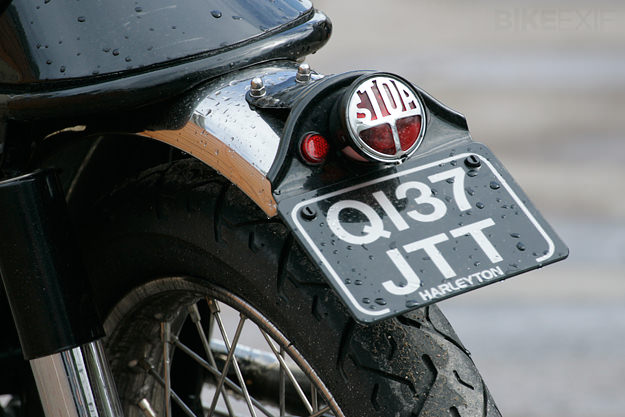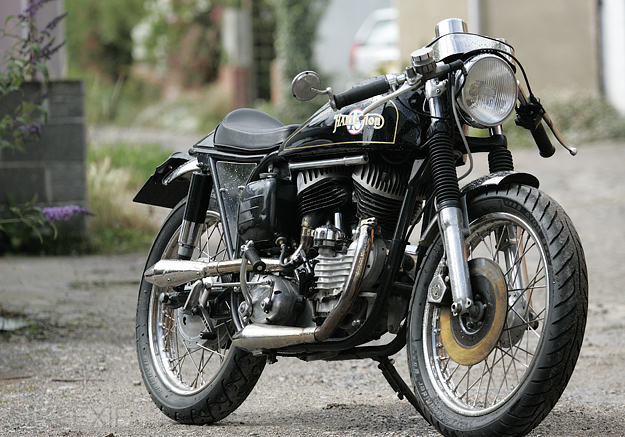
By David Edwards — All you need to know about Nick Roskelley’s budget-built café-racer can be found hanging below the right side of the fuel tank. That’s where you’ll see a shiny aluminum bicycle tire pump. Like most of the components on this bike, it was not store-bought. In fact, “It was bent like a banana and thrown in a dumpster,” says the 54-year-old retired commercial diver. But the price was right—so home it went to Paignton, a small seaside town on England’s south coast. After numerous meetings with a rubber hammer and the polishing wheel, it now looks good as new.
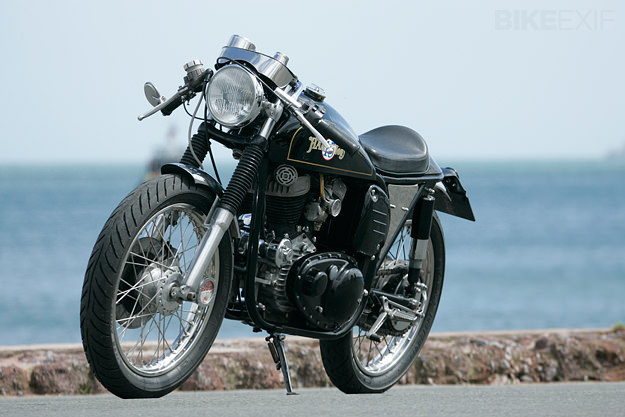
Roskelley calls his creation the “Harleyton 45” a rolling amalgamation consisting of a 45-cubic-inch (750cc) Harley-Davidson flathead V-twin housed in a 1960s Norton Featherbed frame. The engine, of 1942 vintage, was originally found in a WLC model, the Canadian-spec army bike, one of 90,000 military motorcycles Harley built during the war. An odd pairing of motor and frame, for which Nick takes no credit. He purchased the rolling chassis for the princely sum of $2000 just before the owner was about to turn it into a chopper, perish the thought. To date, he’s laid out a total of less than $3500 in bringing the bike to the condition you see it here. That doesn’t include numerous trips to the scrap bin for parts and many late nights in his small workshop persuading them to fit.
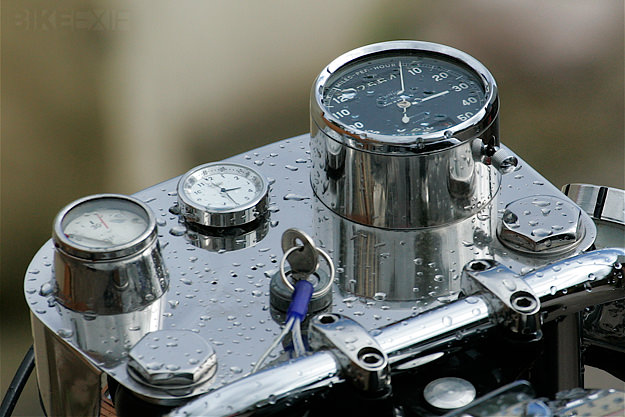
Much of the stainless-steel used throughout the bike was harvested from a secondhand set of kitchen cabinets, including the peashooter silencers. After bronze-welding stubs into the exhaust ports to work with headpipes found in another bin somewhere along the way, Nick hand-beat the stainless remnants into shape using an old Norton fork leg stretched between two axle stands as a kind of crude anvil. Welded up in the workshop, they were polished at slow speed on his lathe at home.
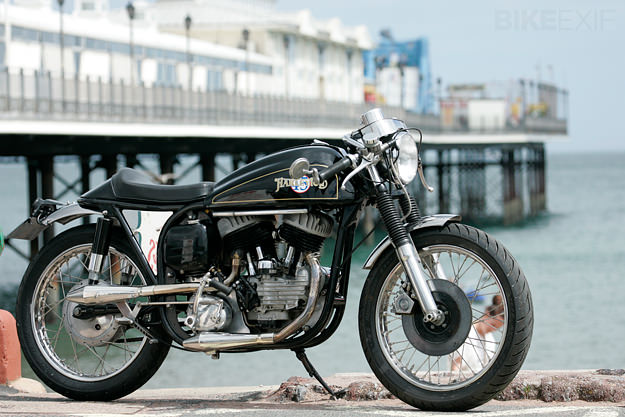
Fuel tank is from a Norton Dominator 99, repainted in Nick’s shop, adorned with a script Harleyton 45 logo designed by a signpainter friend. Another strip of discarded stainless-steel, beaten pretty, secures the tank to the frame. Much effort was expended on the primary case, lineage unknown, taking power from the Harley crankshaft to a Norton four-speed gearbox. “An old guy told me it’s off a BSA B33, but whatever it’s from it doesn’t leak,” Nick says with more than a little pride. Keeping ATF inside the primary where it belongs involved subtle machining, modern seals and a half-inch cork gasket.
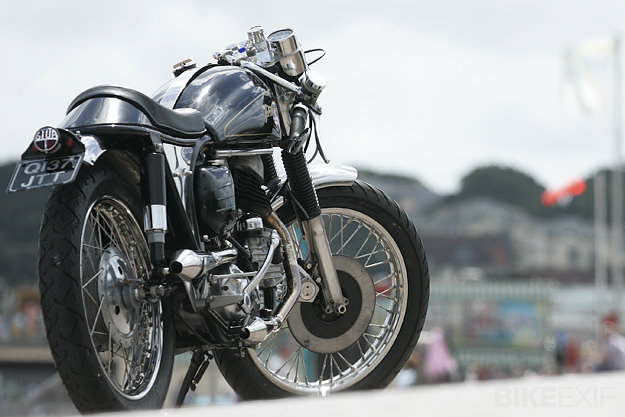
Nick now has about 20,000 miles on his Anglo-American hybrid, with no major faults to report but some interesting cosmic moments. “I take my hat off to the WLC 45 engine. She holds about 95 miles an hour on the flat along Slapton Beach, a place so many American troops lost their lives training for the Normandy landings in World War II,” Nick explains. “I wonder if machines can have soul? A shard of the romantic in me says yes.”
Photos by Neale Bayly.
